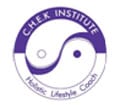Bruising easily, dealing with brittle bones, or worried about heart health?
It might not just be aging or bad luck, you could be missing out on vitamin K2.
While vitamin K1 gets most of the spotlight for blood clotting, K2 is the powerful counterpart that is essential for bone density, arterial health, and cognitive clarity.
Yet it is often lacking in modern diets.
In this article, you will discover:
- What vitamin K2 does in your body
- Signs you are deficient
- Where to find it in food
- When and how to supplement
- Other important considerations including synergy with D3 and magnesium
Quick Snapshot: Why Vitamin K2 Matters
- Name: Vitamin K2 (Menaquinone, includes MK-4 and MK-7)
- Role in the body: Directs calcium to bones and away from arteries; supports brain and cardiovascular health
- Deficiency symptoms: Bone fragility, arterial calcification, dental issues, cognitive decline
- Best food sources: Natto, aged cheeses, egg yolks, liver, fermented foods
- Daily RDI: No formal RDI, but 90-120 mcg/day of MK-7 is commonly recommended
What Is Vitamin K2?
Vitamin K2 is a fat-soluble nutrient in the menaquinone family.
Unlike vitamin K1, which helps blood clot, K2’s main role is in calcium metabolism: ensuring calcium gets deposited into bones and teeth, not soft tissues like arteries.
There are multiple forms, but the most studied are:
- MK-4:Found in animal foods like liver and egg yolks
- MK-7:Found in fermented foods like natto; longer half-life and better absorbed
Key Health Benefits
1. Strengthens Bones
Vitamin K2 activates osteocalcin, a protein that binds calcium to the bone matrix.
This process is crucial for maintaining bone density and strength, especially as we age.
Research shows that people with higher K2 intake have a significantly lower risk of fractures.
It is particularly vital for postmenopausal women and those at risk of osteoporosis.
2.Protects the Heart
Calcium can be a double-edged sword—beneficial for bones, but potentially harmful when it deposits in arteries.
Vitamin K2 helps activate matrix Gla-protein (MGP), which inhibits calcium buildup in blood vessel walls.
This protective role can reduce arterial stiffness, lower blood pressure, and decrease the risk of coronary heart disease.
Long-term studies have shown that those with high K2 intake have up to 50% lower risk of arterial calcification.
3.Enhances Dental Health
The health of your teeth reflects your bone health. K2 supports dentin and enamel strength by directing calcium into teeth via osteocalcin.
It is particularly helpful in preventing cavities and maintaining strong dental structures.
4.Supports Brain Function
Emerging evidence shows vitamin K2 plays a key role in brain cell maintenance and function.
It helps produce sphingolipids—critical fats found in brain cell membranes and protects neurons from oxidative stress.
These functions are essential for preserving cognitive abilities, reducing the risk of neurodegenerative diseases, and maintaining mental clarity as we age.
5.May Improve Insulin Sensitivity
Vitamin K2 has shown promise in enhancing insulin sensitivity and glucose regulation.
It helps reduce inflammation, a major contributor to insulin resistance.
Some studies have observed improved glycemic control in people supplementing with K2, suggesting potential benefits for those at risk of or managing type 2 diabetes.
6.Supports Healthy Aging
Because K2 contributes to bone, heart, and brain health, it is considered a foundational nutrient for healthy aging.
It helps reduce the risk of chronic diseases, maintains mobility and independence, and supports overall vitality as we grow older.
Signs You Might Be Deficient
Even if you eat leafy greens, you could be low in K2:
- Frequent cavities or poor dental health
- Osteopenia or bone fractures
- Early signs of cardiovascular disease
- Cognitive decline or “brain fog”
- History of poor gut health or long-term antibiotic use
Best Food Sources of Vitamin K2
Fermented Foods (Rich in MK-7):
- Natto (fermented soybeans):~1000 mcg per 100g (highest natural source)
- Sauerkraut (unpasteurized):~5-10 mcg per 100g
- Miso:~25 mcg per 100g
Animal Products (Rich in MK-4):
- Egg yolks (pasture-raised):~30-50 mcg per 100g
- Chicken liver:~14 mcg per 100g
- Grass-fed butter:~15 mcg per tablespoon
- Hard cheeses (e.g., Gouda, Brie):~75 mcg per 100g
Note: K2 content can vary widely depending on how animals are raised or how food is fermented.
Supplementation: When and How?
If you are at risk of deficiency or have conditions affecting bone or heart health, supplementation may be beneficial:
Forms:
-MK-4: Shorter half-life, multiple doses/day needed
-MK-7: Longer-acting, more bioavailable
Dosage:
90–120 mcg/day (MK-7) for general support; higher doses used in clinical settings
Safety:
Generally safe with no known toxicity
Consult your doctor if on anticoagulant medication (e.g., warfarin)
Other Important Considerations
K2 + D3 + Magnesium: The Ultimate Trio – These three nutrients work synergistically to optimize calcium metabolism:
- Vitamin D3 increases calcium absorption from the gut.
- Magnesium helps convert vitamin D into its active form and supports over 300 enzyme systems.
- Vitamin K2 ensures that absorbed calcium is directed into bones and teeth, not arteries.
Taking D3 without K2 may increase the risk of arterial calcification.
Together, this trio supports bone strength, cardiovascular health, and optimal cellular function.
Summary
Vitamin K2 is a critical but often overlooked nutrient that directs calcium where it belongs, your bones and teeth and away from your arteries.
Boosting your intake through diet and smart supplementation can protect your skeleton, safeguard your heart, and even support cognitive health.
Pair it with vitamin D3 and magnesium for comprehensive support.
Cameron Corish has been caring and achieving results for the local Wishart, Mansfield and Mt Gravatt community for over 15 years. He takes a multi-disciplined and holistic approach to health and fitness addressing the physical, mental and emotional aspects of one’s health.
Ready to feel and look your best? Book a time for a FREE chat and see how we can make a difference in your life.
If you are not ready yet, come and join our community of health, fitness and wellness enthusiasts with our latest updates. When subscribing to our newsletter you will receive 3 welcome gifts!!
Research References
-NIH Office of Dietary Supplements: Vitamin K Fact Sheet
-Gast GC et al., “A high menaquinone intake reduces the incidence of coronary heart disease.”
-Kaneki M et al., “Japanese fermented soybean food as the major determinant of the large geographic difference in circulating levels of vitamin K2.”
-Beulens JW et al., “The role of menaquinones in human health.”
-Schwalfenberg GK, “Improvement of Osteoporosis and Vitamin D Deficiency With Vitamin K2.”














